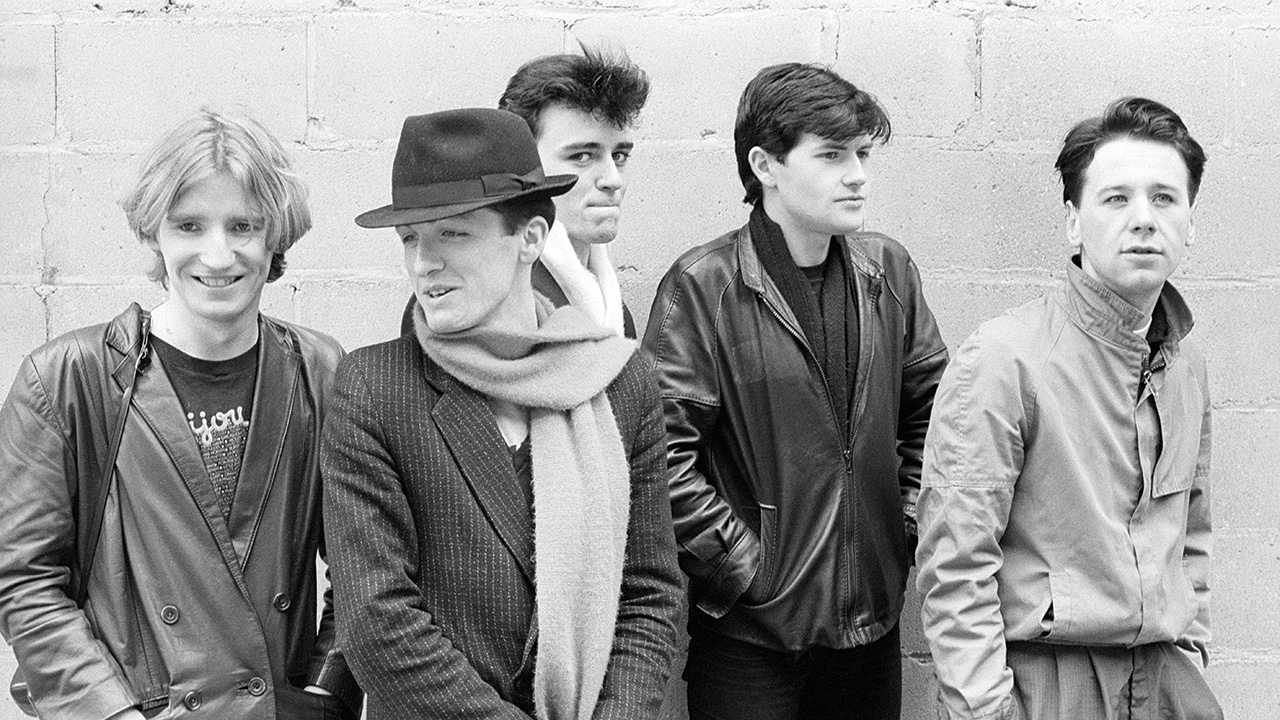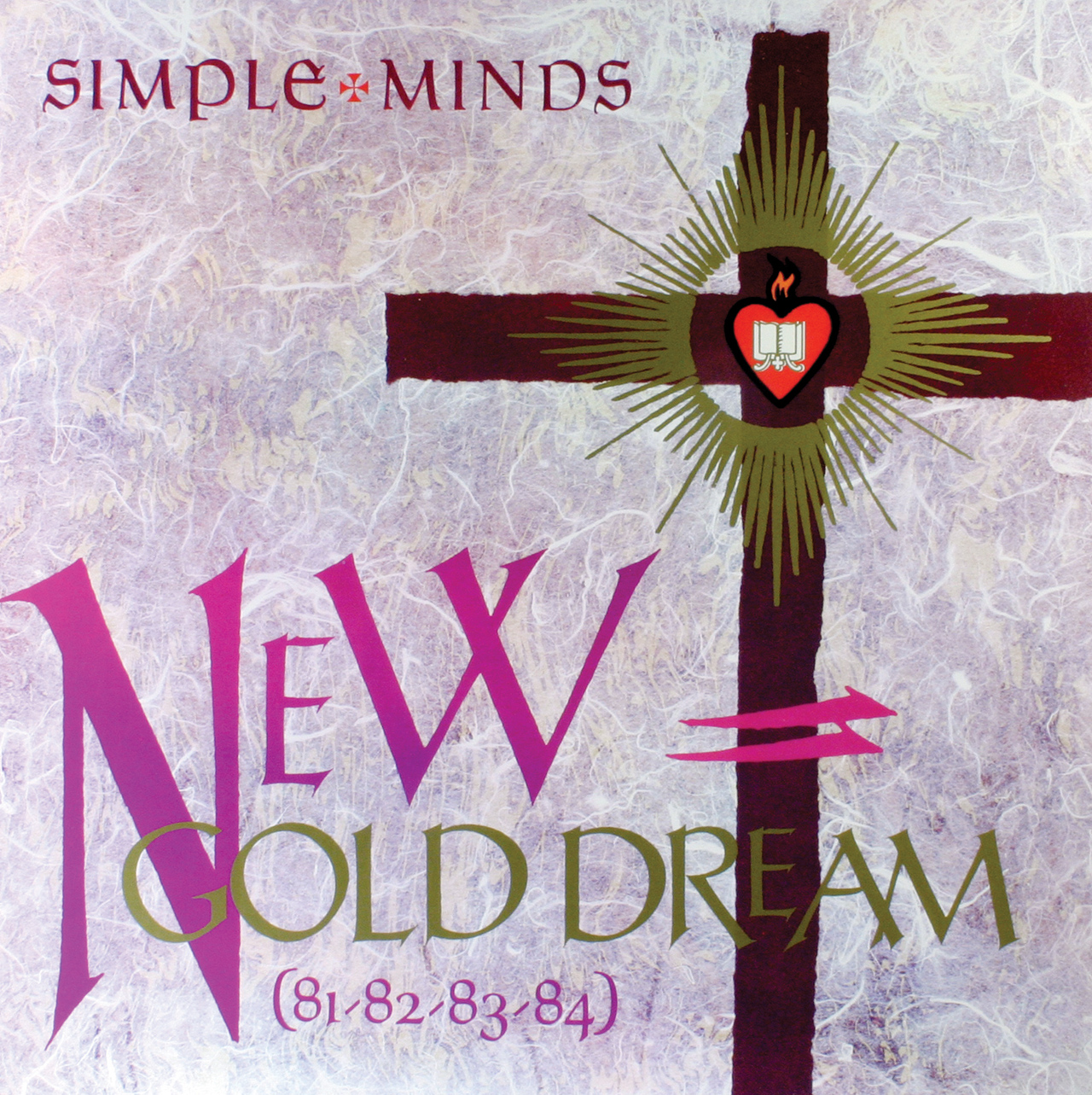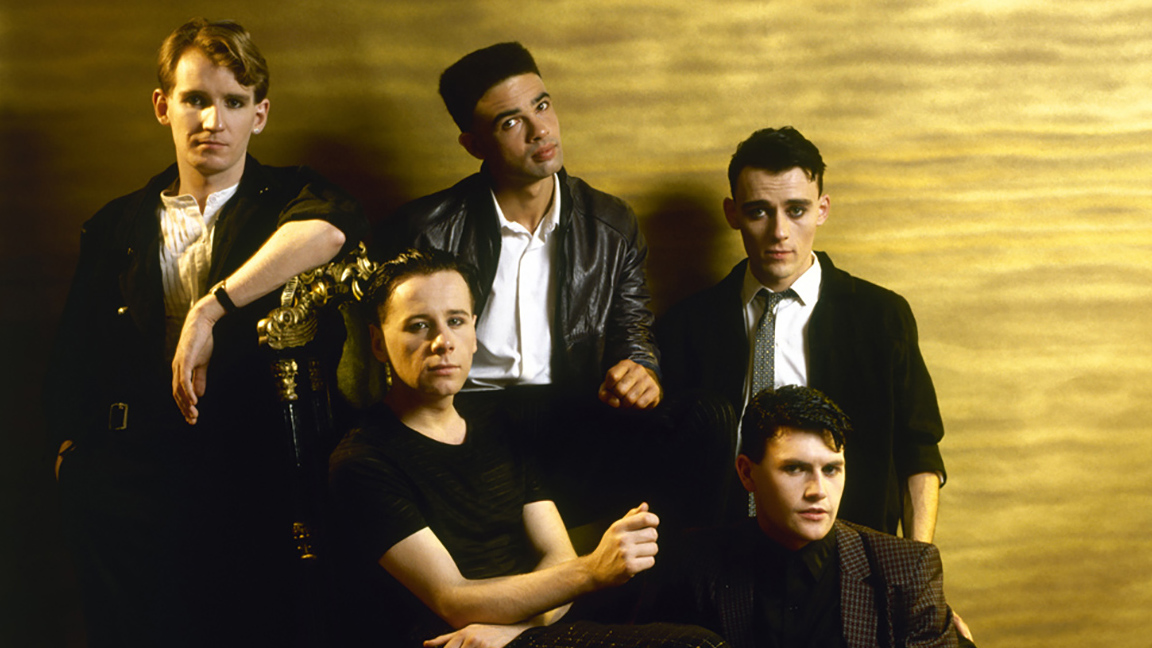Simple Minds: "Genesis appealed to me: they were inventing their own world.”
For many, they’re forever tied to the shallow sheen of 80s arena rock and The Breakfast Club, but Simple Minds had an inventive side waiting to be discovered.

They may have emerged during a period synonymous with synthpop and new romantic, but Simple Minds have always had serious prog credentials. They grew up listening to Yes, Genesis and Van der Graaf Generator, and early reviews of the band made great play of their use of keyboards, verboten after punk, with many in the music press suggesting they had more in common with the prog brigade than they did the spiky-topped hordes. They toured with Peter Gabriel in 1980, at Gabriel’s invitation, and later recorded a version of his song Biko. Their first three albums were produced by John Leckie, tape operator on Syd Barrett’s Barrett and balance engineer on Pink Floyd’s Meddle and Wish You Were Here. Their fourth and fifth albums – originally conceived as a double – were produced by Steve Hillage, bearded member of pothead pixies Gong and a man known for his noodling guitar-work and penchant for wearing a tea cosy for a hat.
And that’s without mentioning the latterday Minds, a.k.a the Mullet Years, when frontman Jim Kerr assumed the persona of a seer and the music became even more marked by ostentation and pomp. Some have even drawn parallels between the Minds circa 1989’s Belfast Child and Dave Gilmour-era Pink Floyd. How prog were Simple Minds? Very prog.
“Were people surprised when I got involved with the band?” wonders Steve Hillage of the time he was asked to produce Sons And Fascination and Sister Feelings Call in 1981. “No. It made sense for them and it made sense for me. One thing we had in common was a shared love of German psychedelic music – bands like Neu! and Can, with a side order of Kraftwerk.”
Had he been listening to Simple Minds prior to working with them?
“Yeah, I’d been following them,” he says. “I was particularly into [third album] Empires And Dance and tracks like Celebrate. I’d heard them being played in clubs but I didn’t actually get to see them live until March 1981 when I saw them play Tiffany’s in Glasgow. I thought they were brilliant, an interesting combination of rock and trance and this dark futuristic thing.”
Could they, with their keyboards-dominated sound, have existed a decade earlier, during the prog age?
“It wasn’t like a Rick Wakeman or Keith Emerson style of keyboards,” he replies. “[Minds keyboardist] Mick MacNeil’s background was in traditional Scottish bands and he created these original lines that made his synths sound like bagpipes. He did pioneering work with sequencers and arpeggiators, and there was maybe a Pink Floyd element to what he did, but it was a lot more like Giorgio Moroder or Chic – [1982 breakthrough hit single] Promised You A Miracle was influenced by Diana Ross’ [Chic-penned] Upside Down – than anyone prog. No, I’d say their prog tendencies became apparent through their love of Genesis – Abacab was a favourite when I worked with them – and of Peter Gabriel, who they toured with. That said, considering they started out as a punk band in the wonderfully named Johnny & The Self Abusers, musicianship was a thing they were proud to have as a frontline quality.”
Sign up below to get the latest from Prog, plus exclusive special offers, direct to your inbox!

Jim Kerr remembers growing up in a tenement in Glasgow in the early 70s with the prog bands forming a crucial part of his soundtrack.
“[Guitarist] Charlie Burchill and I lived in the same street, on a housing estate. We lived in a tower block and for some reason our flat was the one where everyone listened to music. I had a lot of older friends, and through them I got into Genesis, Yes and Van der Graaf Generator. A playlist for a typical night would include Yessongs, Jethro Tull, Stooges, Stevie Wonder and Van der Graaf, but bigger than all of them would be Hawkwind. They were a cosmic biker band, the missing link between hippie, prog and punk.”
He recalls seeing Yes and Genesis in concert when they came to town.
“I saw Yes on the Yessongs tour and I didn’t relate to them emotionally, but I did when I saw Gabriel with Genesis doing Foxtrot. He had a Clockwork Orange, Malcolm McDowell edge, whereas Yes – I loved the bass and the rhythms, but once Wakeman started going off his head on all that classical stuff, I couldn’t relate to that.”
Kerr’s immersion in the records of Genesis – and Kevin Ayers, Roy Harper and Pink Floyd – in his high-rise gives the lie to the idea that this was music for prissy middle-class students. It was a soundtrack to working-class life.
“Well, there was fuck-all else,” argues Kerr. “This was before punk, and the only bands coming to town to play gigs were people like Ayers and Harper and Genesis. It appealed to me: they were inventing their own world.”
It was clear soon after forming Johnny & The Self Abusers in 1977 that Kerr would want to incorporate what he had learned from prog and krautrock musicians, as well as from David Bowie and Brian Eno’s work in Berlin and the proto-electro of Moroder. The sudden availability of cheap synthesisers made the switch to a more electronic approach inevitable.
Steve Hillage describes Simple Minds as the meeting point – “the fulcrum” – of prog, post-punk, funk, synthpop, electronica and art rock.
“I think the blend was pretty equal,” considers Kerr, “especially after Mel [Gaynor, drums] joined [in 1982]. He could be as heavy as John Bonham, but he could groove like hell.”

Simple Minds’ use of prog keyboard textures on their first two albums, Life In A Day and Real To Real Cacophony (both 1979), wasn’t entirely unique. There were other punk and post-punk bands moving in that direction, such as Wire, XTC and Magazine. In fact, Simple Minds would sign to Virgin and chose John Leckie as studio collaborator because that was XTC and Magazine’s label and Leckie was their producer. And yet there was some residual embarrassment about the path they were pursuing.
“In our first interview with NME we uttered the word ‘Genesis’ and I remember thinking, ‘What did you say that for?’” he laughs. “But Magazine were first. When Howard Devoto left Buzzcocks and came back with [Magazine’s debut single] Shot By Both Sides it was like, ‘Fuck, these guys can all play!’ We hadn’t heard keyboard solos since Rick Wakeman. The same goes for XTC. Those bands had great imagination and needed to know how to play, and Simple Minds did as well.”
After what Kerr regards as Simple Minds’ disappointing debut album, which he felt was in the shadow of Joy Division’s Unknown Pleasures, came Real To Real Cacophony, a far more successful move towards the sort of Teutonic electro dance music he had in mind. Empires And Dance (1980) was “one last throw of the dice”, the Minds’ final attempt to achieve a breakthrough. Job done: Peter Gabriel invited the band to support him on tour in Europe. It wasn’t plain sailing.
“We got slaughtered every night by the audiences,” he recalls. “Mind you, so did Gabriel – there were a lot of Genesis fans out there who didn’t want to hear Games Without Frontiers. But we were growing in stature night by night. We didn’t see Gabriel much – he was in hotels, we were in a van – but just seeing him play was enough. Actually, we couldn’t wait for him to get onstage, not just to see him perform but so we could raid his dressing room for food! But Peter showed us there was nothing to be afraid of in big venues, that music could get across. That’s what happens when you grow up with Floyd and Yes – you’re not intimidated by size.”

Simple Minds’ music was getting increasingly trancey, with repetitive grooves and propulsive electronic rhythms that nodded to the motorik pulse-beats of krautrock. Sessions were narcotically enhanced (“There were a million joints, with Nepalese balls first thing in morning”).
Viewed from this perspective, it did have a certain logic that the band should hook up for their next recordings with Steve Hillage, especially given hindsight – in the wake of acid house in the late 80s, Hillage re-emerged with an ambient techno project, System 7.
“We had an the image of the pixie hat and that whole thing,” laughs Kerr. “But when we met him he’d changed. He looked like Robert Fripp, with short hair and a suit. We did one track, The American, with him and it was great.
“We were in sync. He related to our energy, our streetsiness. We were Glasgow housing estate boys, but we had that cosmic thing from the music we grew up with, and he loved it.”
Hillage points out that by the turn of the decade he was experimenting with dance rhythms and the new sounds from Germany and New York, so the fit between the 60s casualty and the Glasgow upstarts was neater than people imagined.
“I was into funk and disco on my late 70s solo albums,” says Hillage. “I wasn’t just doing big guitar solos. So where I was heading and where they [the Minds] were – there wasn’t that much of a gulf.”
Hillage remembers the sessions for Sons And Fascination and Sister Feelings Call, both released in September 1981, as “creatively exciting, if sometimes a bit chaotic”. There was, if anything, a surfeit of ideas, hence the two albums.
“Right from the beginning I knew they were groundbreaking and important records,” claims Hillage, who is back in the studio with Simple Minds for the first time in 30 years. “This was my first major high-profile project, so it was a steep learning curve. But it was a wonderful experience and it helped me sustain my activities as a producer to this day.”

The apotheosis of Simple Minds’ shimmering neo-prog adventurism was 1982’s New Gold Dream (81-82-83-84), produced by Peter Walsh. The band’s most experimental effort, complete with quasi-religious cover art, also proved their commercial breakthrough. A big influence on U2 and their producer Daniel Lanois, it was also popular in prog circles.
“Peter Hamill came to our gigs because he loved what we were doing, so did Dave Gilmour and Phil Collins,” Kerr says, proudly. It was a glorious period in British music when you could have a successful album with music that was risk-taking, music that, as Kerr puts it, “threw out the rulebook and didn’t give a fuck”.
Although arguably Simple Minds peaked artistically with New Gold Dream and their halcyon days were the early ones, a notion confirmed by the fact that it is their first five albums that are enshrined in the X5 box set, it was after 1982 that the band became massive world-beaters, second only to U2 in the stadium behemoth stakes.
It was in the wake of their Live Aid performance, and the global success of the single Don’t You (Forget About Me), that the Minds began having regular No 1 albums (with Once Upon A Time and Street Fighting Years), playing the amphitheatres of their childhood heroes Gabriel, Genesis and Floyd.
But it’s the early 80s that remain their shining moment. Now they’re about to recreate that moment with Hillage as they finish recording what will be Simple Minds’ 16th album. Talk about back to the future.
“The last time we worked with him,” says Kerr, “was 1981 and Britain was on fire, with riots in Brixton and Toxteth. Lo and behold, for our first sessions [in late summer 2011] all this shit is going on in Tottenham while we work with Hillage on a krautrock riff! Everything changes, everything stays the same...”
This article first appeared in issue 25 of Prog Magazine.
Paul Lester is the editor of Record Collector. He began freelancing for Melody Maker in the late 80s, and was later made Features Editor. He was a member of the team that launched Uncut Magazine, where he became Deputy Editor. In 2006 he went freelance again and has written for The Guardian, The Times, the Sunday Times, the Telegraph, Classic Rock, Q and the Jewish Chronicle. He has also written books on Oasis, Blur, Pulp, Bjork, The Verve, Gang Of Four, Wire, Lady Gaga, Robbie Williams, the Spice Girls, and Pink.

